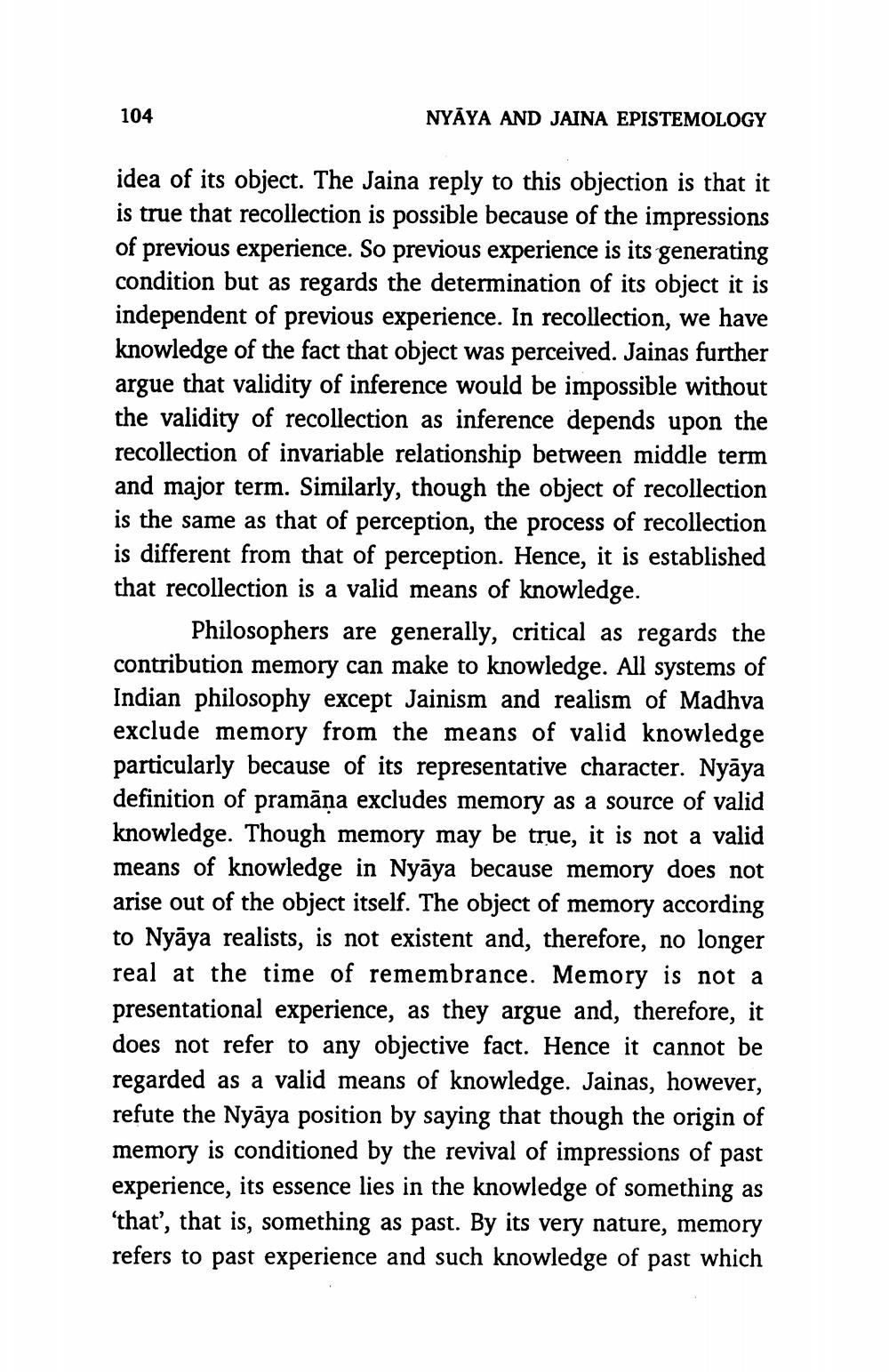________________
104
NYAYA AND JAINA EPISTEMOLOGY
idea of its object. The Jaina reply to this objection is that it is true that recollection is possible because of the impressions of previous experience. So previous experience is its generating condition but as regards the determination of its object it is independent of previous experience. In recollection, we have knowledge of the fact that object was perceived. Jainas further argue that validity of inference would be impossible without the validity of recollection as inference depends upon the recollection of invariable relationship between middle term and major term. Similarly, though the object of recollection is the same as that of perception, the process of recollection is different from that of perception. Hence, it is established that recollection is a valid means of knowledge.
Philosophers are generally, critical as regards the contribution memory can make to knowledge. All systems of Indian philosophy except Jainism and realism of Madhva exclude memory from the means of valid knowledge particularly because of its representative character. Nyāya definition of pramāna excludes memory as a source of valid knowledge. Though memory may be true, it is not a valid means of knowledge in Nyāya because memory does not arise out of the object itself. The object of memory according to Nyāya realists, is not existent and, therefore, no longer real at the time of remembrance. Memory is not a presentational experience, as they argue and, therefore, it does not refer to any objective fact. Hence it cannot be regarded as a valid means of knowledge. Jainas, however, refute the Nyāya position by saying that though the origin of memory is conditioned by the revival of impressions of past experience, its essence lies in the knowledge of something as 'that', that is, something as past. By its very nature, memory refers to past experience and such knowledge of past which




